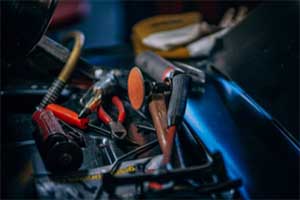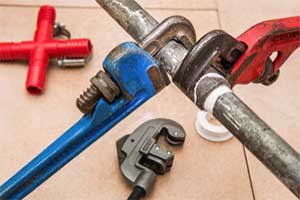Kelly Friel is the Digital Product Manager at Zoro, suppliers of professional plumbing tools and equipment. Here, she gives her top tips on how you can maintain your plumbing tools to provide the most effective service time and time again.
As a professional plumber, your job is to fix the day-to-day problems that households and businesses have, no matter how minor or major the project. So, the last thing you want is for your tools to let you down. An important part of this is to ensure that you always keep them well-maintained, and to help you with this, I’m going to give you my top tips for keeping everything in your arsenal in working order. Read on to find out more.
Store your plumbing tools with care
Make sure each tool type has a separate compartment in your toolbox, as this will help to stop them coming into contact with others that could damage them. Some tools may even have their own special storage instructions — like torque wrenches, which need to be loosened at the spring to prevent weakening — so be sure to abide by these.
Enclosed storage spaces, like garages and basements, can have humidity issues that might cause wear to your kit. If you must keep them in this type of environment, invest in a dehumidifier, silica gel packs, or rust collectors and anti-rust liners.
Clean your plumbing tools after every use 
While most of your kit will only require a quick wipe down, most hand tools which look a bit dirty can be cleaned in minutes by dunking them in a bowl of hot soapy water followed by a thorough dry. However, some will need a little extra TLC. Hand and power tools with adjustable parts will need lubricating for storage to maintain their optimum level of performance and to help fight rust development, so check your tool’s instruction manual to see if a specific oil is recommended. However, spraying a light coat of WD-40 onto them straight after use can be just as effective — just be sure to leave a thin layer of it on.
For tools like toilet plungers, create a mix of detergent and bleach in the toilet bowl and swirl the plunger round for a minute or two. Do keep this separate from the rest of your tools though as there’s no guarantee that all of the bacteria will be gone after this regime.
Inspect your plumbing tools frequently
Inspecting your tools regularly can also help to prolong them if done thoroughly and frequently enough. Generally, plumbers are encouraged to check their tools for any signs of damage after every use to ensure their work is made easier, safer and of a high-standard. Caring properly for your tools increases the likelihood of them lasting longer, making it essential.
 Hand Tools
Hand Tools
Use the daily cleaning time as an opportunity to inspect these thoroughly for any damage. Handles that are cracked, or blades that are blunt will need replacing or repairing, depending on the extent of damage and the cost to fix it.
You should also check hand tools used for repeated striking for signs of mushrooming, where the edges of the metal head begin to curl. You can keep this issue at bay by regularly shaving the metal sides off with a powered grinder.
Power Tools
Keep an eye on frayed or exposed power cords as these can cause electric shocks or fires. Don’t forget to check the cord’s prongs because, if they are bent, they’ll also need replacing or repairing.
Any battery-powered tools will need regular battery checks and changes to keep them working efficiently. Generally, it’s recommended to fully charge and then discharge their power once every couple of weeks and to use batteries once every two weeks rather than letting them sit unused for prolonged periods. If you’ve got spare batteries laying around, make sure you store these away in a dry, clean and cool place.
Pick quality tools initially
With three different grades of tools available — professional, intermediate, and consumer-grade — most skilled plumbers will opt for the first type, which are higher-quality and often more expensive. When choosing the best quality tools, go for materials like tool steel — which refers to a mix of carbon and alloy steels — for both your hand tools and power tools. This metal is highly suitable for plumbing work due to its durable nature, as well as its good shock and corrosion resistance. When considering brands for the best tools, ones that offer long-term or lifelong warranties are mainly the best option. Not only does it help reassure you about a product’s reliability, but it also gives you peace of mind when they’re on the more expensive side of the spectrum.

Add new comment